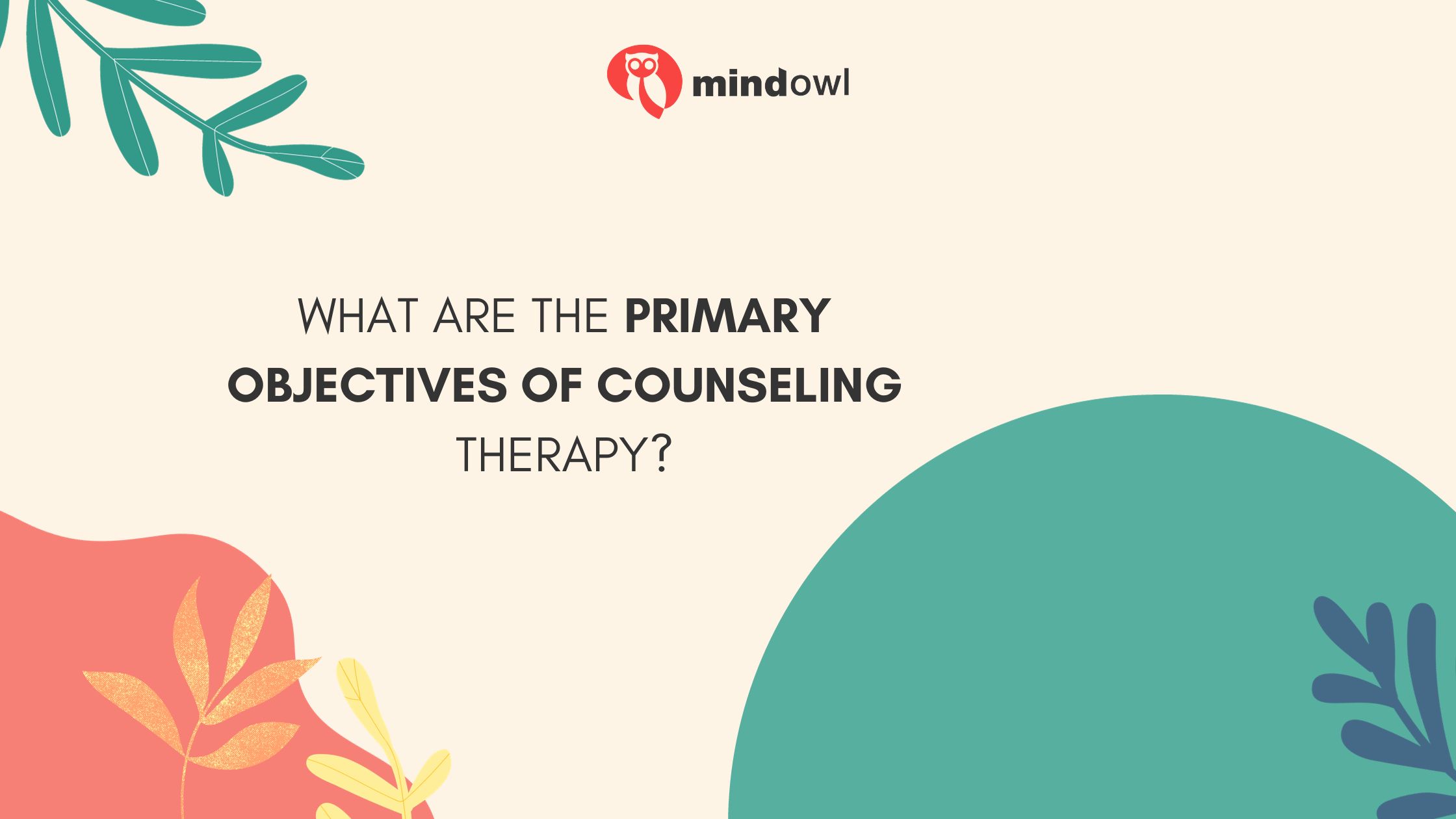Counseling is such a broad spectrum of support, yet no matter what aspect you are talking about the end goal is always to support mental and emotional health. A counselor will endeavor to provide guidance and support during an individual’s challenging times. To understand counseling therapy further, let’s take a closer look at some key objectives they work to.
Goal Setting
Counseling therapy aims to support everyone to break their cycle of behavior, whatever that might be, by working with that individual to set realistic goals to allow them to thrive and recover. The importance of goal setting is to ensure that the person has a clear understanding of what the problem is and a solution to eliminate or reduce the impact. Most goal-setting processes involve a series of steps rather than a single solution. An example of this could be the issue of binge eating. The goal wouldn’t just be to simply cease the behavior, it would outline in steps how to achieve this. Step one, create a food diary for a week to share with the counselor at the next session. Step two, start changing eating patterns by introducing substitute foods, and finally, step three is to eat healthy controlled portions.
Types Of Goals
Counseling goals can be simplified, as above, by creating a step-by-step guide on how to achieve them. However, counseling goals can be widely more complicated than this depending on what the objective of the individual is. Areas such as developmental goals that incorporate personal, emotional, cognitive, and physical wellness. Preventive goals support the individual to avoid certain outcomes. Exploratory goals examine the options of trying new and different activities. There are many different goal-types in counseling and the aforementioned are just touching the surface.
Healing the Body & Mind Together
There is a direct link between physical and mental health. When individuals receive counseling to help regulate emotions, it is usually found that physical health improves as well. Individuals who are looking after their mental health via counseling support tend to have a more balanced lifestyle, incorporating healthy habits such as proper diet and exercise. This not only improves physical health, but can also reduce the need for costly healthcare services.
Counseling For Self-Education.
Many people who initially start counseling services understand they are suffering but do not truly comprehend the underlying causes, the specifics of a condition, or the differing techniques that can be used to address these conditions. Psychoeducation is the process of learning more about mental health conditions, diagnoses, and treatment options. Psychoeducation can assist with normalizing problems, decreasing stigma, and encouraging compliance with set treatment plans. Anybody who is thinking about, or presently undertaking counseling should work with their counselor to educate themselves to help support their own recovery.
Studying To Help Others.
Anybody who has attended counseling and experienced the benefits can speak to the virtues of supported mental-health services. This can center around many aspects of a person’s life including divorce, anxiety disorders, eating disorders, depression, post-traumatic stress disorder (PTSD), and many other varying conditions. Helping others is the main objective of a counselor and once you have seen the benefit for yourself, you may want to look into the option of studying counseling careers so you can undertake a worthwhile and rewarding career pathway.
Other Objectives
Each individual will have different needs, interests, and expectations of counseling and as such, results will vary for each person. While many of the main objectives are listed above, some further important aspects of counseling include:
Improving Relationships
With all the changes brought about by COVID-19, more and more individuals are struggling with social skills and personal relationships. This can lead to defensive behaviors and poor self-esteem. Counseling can assist with improving these areas by developing an understanding of more effective communication techniques and building on interpersonal skills.
Dealing With Change
Anybody who says they thrive in an ever-changing environment is generally not telling the whole story, as adapting to an unknown environment or sudden disruption is often a scary undertaking and perceived negatively. Counseling will work with individuals on change management strategies and coping mechanisms that will aid in navigating periods of change.
Decision Making
Everyone should be able to make critical decisions relating to their own lives, however, many people find this task incredibly daunting, and they instead rely on others to do so for them, or, ultimately make poor decisions. Counseling can assist by helping people obtain useful information about available support services, and also through capacity-building techniques to encourage better decision making.
Seeing Your Potential
Counseling aims to support people looking to increase their self-esteem and realize their full potential. Many people allow their lives to just roll by; viewing it through a lens rather than truly living it. Counseling will help people build confidence and improve resilience in order to take back control and foster a more kind, open relationship with oneself.
The objective of counseling varies depending on the individual, but that is what makes this service such a powerful tool. Whatever you are trying to achieve or change in your life, participation in counseling therapy may just be the key to unlocking your best self.
MindOwl Founder – My own struggles in life have led me to this path of understanding the human condition. I graduated with a bachelor’s degree in philosophy before completing a master’s degree in psychology at Regent’s University London. I then completed a postgraduate diploma in philosophical counselling before being trained in ACT (Acceptance and commitment therapy).
I’ve spent the last eight years studying the encounter of meditative practices with modern psychology.

